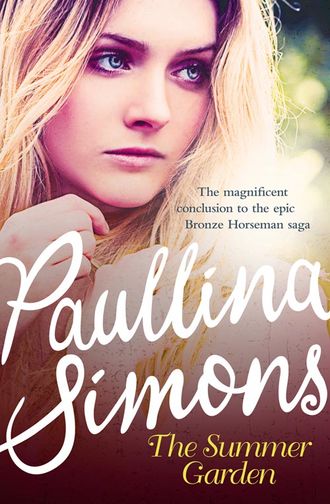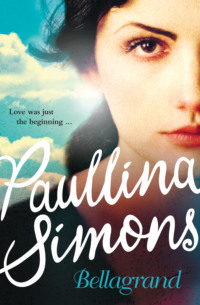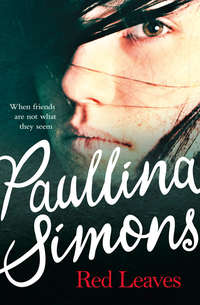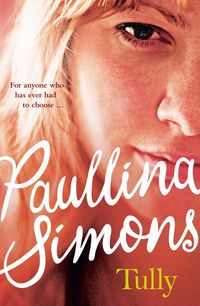
Полная версия
The Summer Garden
Alexander takes Anthony off his knee and says in a throaty, nicotine-stained voice, “Tatia, want to play? Put your fingers into my fist and see if you can wriggle free. Come.” Not a muscle moves on his face, but her heart is no longer just gladdening. It’s quickening, it’s maddening. She knows she shouldn’t, Anthony is right there, but when Alexander calls, she comes. That’s just how it is. She perches on his lap and touches together the tips of her slightly trembling index fingers. She tries not to look into his face, just at her fingers, over which he now places his enormous fist, squeezes lightly, and says, “Go ahead, wriggle free.” Her whole body weakens. She tries, of course, to get free, but she knows this: while as a father Alexander plays one way with Anthony, as a husband, he plays the opposite way with her. She bites her lip to keep from making a single sound.
“Come on, Mommy,” says the uncomprehending child by her side. “You can do it. I did it! Wriggle free.”
“Yes, Tatiasha,” whispers Alexander, squeezing her fingers tighter, looking deep into her face as she sits on his lap. “Come on, wriggle free.”
And she glimpses the smiling soul peeking out.
But when he drives, he is often silent and sullen. She hates it when he reduces himself like this to the worst of his life—it’s hard to draw him away, and sometimes even when he wants to be drawn, he can’t be. And sometimes Tatiana is so full of fears herself of the imminent danger to Alexander at every stop sign that she loses the weapons she needs to draw him away, herself reduced to the worst of her life.
She wishes for something else to swallow them, where the road wouldn’t apprehend her, where his soul wouldn’t apprehend him. Perhaps if they were less human.
She was leading him to Phoenix, but Alexander was too hot; he almost wanted to drive straight on to California. “I thought you wanted to see the ninety-seven acres I bought with your mother’s money,” she said to him.
He shrugged, drank some water. “What I want,” he said, “is to feel water on my body. That’s what I want. Will we get that in Phoenix?”
“Not if I can help it.”
“Exactly. I am thus reluctant.”
It took them a day to get from Arizona’s eastern border to Phoenix. They had stopped at a camping site that evening near the Superstition Mountains. Alexander lay down on the wooden deck under the water spout with the cold water pouring down onto his chest and face. Anthony and Tatiana stood at a polite distance and watched him. Anthony asked if his dad was all right.
“I’m not sure,” said Tatiana. “I’d say the odds are fifty-fifty.” Had Alexander insisted a little harder, she would’ve been easily persuaded to keep moving until they reached the Pacific. Not because she didn’t want to show him their desert property, but because she thought there was a possibility that Federal agents would be waiting for them in the only place that belonged to them. Vikki might have mentioned the land to Sam Gulotta. Tatiana suspected she might have mentioned it to Sam herself. She and Sam had developed a friendship over the years. What if they were waiting? The thought was sickening her. But unfortunately Alexander didn’t protest hard enough. Tatiana already knew what she wanted to do—unthinkable though it was: to sell the land! Just sell it at whatever price, take the money, go far into another state, maybe into the vastness of Montana, and never be seen again. She had no illusions: Sam’s allegiance was hardly going to be to her and Alexander. Sam wasn’t Aunt Esther. Tatiana was mute as she thought of these things while her husband lay on the deck drowning himself with running water.
The following morning, they took the Superstition Freeway. “It’s very flat here,” Alexander said.
“Well, it is called Mesa,” said Tatiana. “It means flat.”
“Please tell me the land is not here.”
“Okay, the land is not here.” There were stone mountains in the far distance across the flatlands. “This is too developed.”
“This is too developed?” he said. There were no stores, no gas stations, just farmland on one side, untouched flat desert on the other.
“Yes, this is Tempe,” Tatiana said. “Quite built up. Scottsdale, where we’re headed, is a little Western town. It’s got a few things—a store, a market. You want to see it first? Or …”
“Let’s see this mythical promised land first,” he said.
They continued to drive north through the desert. He was thirsty. She was frightened. The paved road ended, and a gravelly Pima Road began that separated the Phoenix valley from the Salt River Indian Reservation that stretched for miles to the McDowell Mountains. It wasn’t as flat anymore, the blue dusty mountains rising up on all sides far and near, low and wide, in the apocalyptic heat.
“Where are these mountains you told me about?”
“Shura, don’t tell me you don’t see them!” Tatiana pointed straight ahead. The ranges did loom rather large and monolith-like across the saguaros, but Alexander was in a good mood this morning and wanted to tease her.
“What, those? Those aren’t mountains. Those are rocks. I know, because I’ve seen mountains. The Tontos we passed yesterday, those were mountains. The Santa Fe, those were mountains. Also I’ve seen the Urals, I’ve seen the Holy Cross Mountains, completely covered by coniferous forest. Those were mountains.” His mood became less good.
“Now, now …” Tatiana said, reaching over and easing him away with her hand on his thigh. “These are Arizona’s McDowell Mountains. Sedimentary rock on top of granite rock formed from lava two billion years ago. Precambrian rocks.”
“Aren’t you a little geologist.” Alexander grinned. “A capitalist and a geologist.” She was in yellow gingham today, white bobby socks and ballet slipper shoes, her hair pulled back in a braided bun. She didn’t have a bead of perspiration on her face, looking almost serene if only Alexander didn’t look down on her lap and notice her fingers pressed so stiffly against each other, they looked as if they were breaking.
“All right, all right,” he said with a slight frown. “They’re mountains.”
They chugged along north, kicking up dirt with their dusty tires. The McDowell Mountains drew closer. The sun was high. Alexander said they were idiots, morons for taking a trip across the hottest part of the country during the hottest part of the year. If they were smart they would have left Coconut Grove early, driven up to Montana to spend the summer, then carried on to California for the grape-picking.
“You didn’t want to leave Florida, remember?”
“Hmm,” he assented. “Coconut Grove was quite nice for a while.”
They fell quiet.
It was another forty-five minutes of unpaved frontier road with not a house, a fruit stand, a gas station, a storefront, or another soul around before Tatiana told him to make a right on a narrow dirt path that sloped upward.
The path was called Jomax.
Jomax ended in a sun-drenched rocky mountain, and that’s where Alexander stopped, a mile above the valley. Tatiana, her fingers relaxed, a toothy, happy smile on her face, exclaimed, “Oh God! There is nobody here!”
“That’s right,” Alexander said, turning off the ignition. “Because everyone else is in Coconut Grove in the ocean.”
“There is nobody here,” she repeated, almost to herself, and hopped out of the trailer.
Anthony ran off but not before Tatiana stopped him, saying, “Remember what I told you about the cholla, Ant? Don’t go anywhere near it. The wind blows the puffs of needles right under your skin and I won’t be able to get them out.”
“What wind? Let go of me.”
“Anthony,” said Alexander, looking for his lighter, “your mother tells you something, you don’t tell her to let go. Tania, hold on to him for another two minutes until he understands that.”
Tatiana made a face at Anthony, pinched him, and quietly let him go. Alexander’s lighter was in her hands. She flicked it on for him, and he cupped her hand as he lit his cigarette. “Stop being so soft with him,” he said.
Walking away from her to explore a little, Alexander looked north and south, east and west, to the mountains, to the expanse of the entire Phoenix valley lying vast beneath his gaze, its farms all spread out in the overgrown rolling Sonoran Desert. This desert wasn’t like the Mojave he vaguely remembered from childhood. This wasn’t gray sand with gray mounds of dirt as far as the eye could see. This desert in late July was covered in burned-out, abundant foliage. Thousands of saguaro cacti filled the landscape, their brown-green spiky towering pinnacles and their arms reaching thirty, forty feet up to the sun. The mesquite trees were brown, the palo verdes sepia. The underbrush and the motley over-brush were all in hues of the taupe singed earth. All things grew not out of grass, but out of clay and sand. It looked like a desert jungle. It was not at all what Alexander had expected.
“Tania …”
“I know,” she said, coming up against him. “Isn’t it unbelievable?”
“Hmm. That wasn’t quite what I was thinking.”
“I’ve never seen anything like it in my whole life.” Her voice became tainted with something. “And wait till you see this place in the spring!”
“That implies that we would see it in the spring.”
“Everything blooms!”
“And you know this how?”
“I know this,” Tatiana said with funny solemnity, “because I saw pictures in a book in the library.”
“Oh. Pictures in a book. Do these books mention water?”
She waved her hand dismissively. “The Hohokam Indians back hundreds of years ago saw what I see and wanted to live in this valley so much that they brought water here by a series of canals that led from the Salt River. So back when the mighty British Empire was still using outhouses, the Hohokam Indians were irrigating their crops with running water.”
“How do you know?” he exclaimed.
“The New York Public Library. The white man here still uses the Hohokam canals.”
“So there is a river around here then?” He touched the dry sand with his hands
“Salt River, but far,” Tatiana replied. “With any luck, we’ll never have to see it.”
Alexander had never experienced this kind of stunning heat. Even in Florida, all was tempered by the water. No temperance here. “I’m starting to boil from the inside out,” he said. “Quick, show me our land before my arteries melt.”
“You’re standing on it,” said Tatiana.
“Standing on what?”
“The land.” She motioned around. “This is it. Right here, all of it, at the very top of this hill. From this road due southeast, ninety-seven acres of the Sonoran Desert flush into the mountain. Our property is two acres wide, and—you know—about forty-nine acres deep. We’ll have to get a surveyor. I think it may open up in a pie shape.”
“Kind of like Sachsenhausen?”
Tatiana looked as if she’d been slapped. “Why do you do that?” she said quietly. “This isn’t your prison. This is your freedom.”
Slightly abashed, he said, “You like this?”
“Well, I wouldn’t have bought it if I didn’t like it, Shura.” Tatiana paused. Once again strange trouble passed over her face.
“Tania,” Alexander said, “the place is going to set itself on fire.”
“Look,” she said, “we’ll go, we’ll get it appraised. If the price is right, we’ll sell it. I have no problem selling it. But … don’t you see!” she exclaimed, coming up to him. “Don’t you see the desert? Don’t you see the mountains?” She pointed. “The one right next to ours is Pinnacle Peak; it’s famous. But ours has no name. Maybe we can call it Alexander’s Mountain.” She raised her eyebrows, but he wasn’t playing at the moment, though he noted her mischief for later.
“I see the desert,” Alexander said. “There’s not a single green thing growing anywhere. Except cacti and they don’t need water. I’m not a saguaro. I need water. There is no good river and no lakes.”
“Exactly!” she said, all energized. “No rivers. No Nevas, Lugas, Kamas, Vistulas. No lakes. No Lake Ilmens, no Lake Ladogas. No fields. No clearings. No pines, no pine needles, no birches, no larks, almost no birdsong. Sometimes the swallows come in the summer. But there are no forests over the mountains. There’s no snow. You want those things, you can go into the Grand Canyon in the winter. The Ponderosa pine grows a mile above the ice cold Colorado.” Standing close, she put her intimate hands on him. “And you are a little bit like the mighty saguaro,” she murmured.
Okay, Alexander was noting the playing, he was coming back to it very shortly. “I won’t live anywhere without water, Tatiana Metanova.” He stamped out his cigarette and his arms went around her. “I don’t care what you’re trying to get away from.”
“It’s Tatiana Barrington, Alexander Barrington,” said Tatiana, slipping out of his hold. “And you don’t know anything about what I’m trying to get away from.”
He blinked at her. “I think even here in Arizona there might be a moon. Maybe a crimson moon, Tatia? A large, low, harvest crimson moon?”
She blinked back. “Why don’t you put on your sixty pounds of gear and pick up your weapons, soldier.” Backing away with a swirl, she walked back to the Nomad, while Alexander remained like a post in the sand. In a moment she returned with some water, which he gulped gladly, then went to look for Anthony, finding him near the prickly pears, deeply immersed in a study of rocks. Turned out it wasn’t rocks, it was a lizard, which the boy had pinned to the ground with a sharp cactus needle.
“Ant, isn’t that the cactus your mother told you to stay away from?” Alexander said, crouching by his son and giving him some water.
“No, Dad,” Anthony replied patiently. “Cholla is bad for playing with lizards.”
“Son,” said Alexander, “I don’t think that lizard is playing.”
“Dad, this place is swarming with reptiles!”
“Don’t say that as if it’s a good thing. You know how afraid your mother is of reptiles. Look how you’re upsetting her.”
They peeked out from the prickly pears. The upset mother was leaning back against the Nomad, eyes closed, palms down, sun on her face.
After a while, he returned to her, splashing water on her. That made her open her eyes. Alexander paused to take her in, her square-jawed flushed face, outrageous freckles, serene seaweed eyes. He appraised the rest of her up and down. She was so arousingly tiny. And bewildering. Shaking his head, Alexander hugged her, he kissed her. She tasted as though plums had dried on her lips.
“You are out of your mind, my freckle-faced tadpole,” he said, eventually stepping away, “to have bought this land in the first place. I honestly don’t know what in the world possessed you. But now the die is cast. Come on, Arizona-lover, cholla-expert, before we go see the appraiser, let’s eat. Though we’ll have to go somewhere else to put water on our bodies, won’t we?”
They brought out their flasks, their bread, their ham. Earlier that morning they had bought plums, cherries, tomatoes, cucumbers at a farm stand. They had so much to eat. He rolled out the canopy, they sat under it, where it was a hundred in the shade, and feasted.
“How much did you say you paid for the land?” he asked.
“Fifty dollars an acre.”
Alexander whistled. “This is near Scottsdale?”
“Yes, Scottsdale is only twenty miles south.”
“Hmm. Is it a one horse town?”
“Oh, not anymore, sir!” said a real estate agent in Scottsdale. “Not anymore. There’s the army base, and the GIs, like you, sir, they’re all comin’ back from the war and marrying their sweethearts. You two are newlyweds?”
No one said anything, as the four-year-old child sat near them lining up the real estate brochures in neat rows.
“The housing boom is something to behold,” the realtor went on quickly. “Scottsdale is an up-and-coming town, you just watch and see. We had nobody here, almost as if we weren’t part of the Union, but now that the war is over, Phoenix is exploding. Did you know,” he said proudly, “our housebuilding industry is number one in the country? We’ve got new schools, a new hospital—Phoenix Memorial—a new department store in Paradise Valley. You would like it here very much. Would you be interested in seeing some properties?”
“When are you going to pave the roads?” asked Alexander. He had changed into clean beige fatigues and a dry black T-shirt. Tattoos, scars, blue death camp numbers, no matter—he could not wear a long-sleeve shirt in Arizona. The real estate man kept trying not to glance at the long scar running up Alexander’s forearm into the blue cross. The realtor himself was wearing a wool suit in which he was sweating even in air conditioning.
“Oh, every day, sir, new roads are being paved every day. New communities are being built constantly. This is changing from farm country to a real proper town. The war has been very good for us. We’re in a real boom. Are you from the East? I thought so, by your wife’s accent. Much like your Levittown communities, except the houses are nicer here, if I may be so bold. May I show you a couple of—”
“No,” said Tatiana, stepping forward. “But we would be interested in finding out the going price of our own property here. We’re up north, off Pima Road, near Pinnacle Peak.”
The realtor’s face soured when he heard they weren’t in the market. “Where, near Rio Verde Drive?”
“Yes, a few miles south of there. On Jomax.”
“On what? They just named that road. You have a house there? There’s nothing up there.” He said it as if he didn’t believe her.
“No house, just some property.”
“Well,” he said with a shrug. “My appraiser is out to lunch.”
An hour later, the appraiser and the realtor’s faces were trying to maintain their poker expressions, but it wasn’t working. “How many acres did you say you have?” the appraiser said, a short man with a small head, a large body and an ill-fitting suit.
“Ninety-seven,” repeated Tatiana calmly.
“Well, that’s impossible,” said the appraiser. “I know all the land bought and sold here. I mean, the town of Scottsdale is just now thinking of incorporating—do you know how many acres?—sixty hundred and forty. Three and a half square miles. A smart man bought them last century for three and a half dollars an acre. But that was then. You’re telling me you have ninety-seven acres? A sixth of the land of our whole town? No one sells in large parcels like that. No one would sell you ninety-seven acres.”
Tatiana just stared at him. Alexander just stared at him. He was trying to figure out if this was a ploy, a game, or whether the guy was actually being rude, in which case—
“Land’s too valuable,” stated the appraiser. “Around here we sell one acre, two at most. And up there, there’s nothing but desert. It’s all owned by the Federal Government or the Indians.”
So it was a ploy. Alexander relaxed.
Tatiana was silent. “I don’t know what to tell you. You don’t think I can count to ninety-seven?”
“Can I see the deed, if you don’t mind?”
“Actually, we do mind,” Alexander said. “Are you going to tell us what the land is worth or do we have to go somewhere else?”
The appraiser finally spluttered that being all the way out there, all the way out in the boonies where no one wanted to go, the land now would probably be worth about $25 dollars an acre. “It’s a good price for it—there’s nothing up there, no roads, no electricity. I don’t know why you would buy land in a location so isolated.”
Tatiana and Alexander exchanged a glance.
“Like I said, it’s worth twenty-five dollars,” said the appraiser quickly. “But this is what I can do for you. If you sell, say, ninety-five of those acres, keeping two for yourselves, we can give you a one time deal, take it or leave it, of … forty dollars an acre.”
“Mister,” said Alexander, “we’ll gladly leave it. We paid fifty an acre for that land.”
The appraiser wilted. “You vastly overpaid. But … to get your business, I’ll be glad to give you fifty. Imagine all that money in your pocket. You could buy yourself a brand new house with that. For cash. We have an outstanding development near here in Paradise Valley. You only have the one boy? But perhaps more in your future? How about if I show you some new communities?”
“No, thanks.” Alexander prodded Tatiana to go.
“All right, wait,” said the appraiser. “Sixty dollars an acre. That’s nearly a thousand dollar profit on your original investment. Half a year’s salary to some people.”
Nodding vigorously, Tatiana opened her mouth to speak, but Alexander squeezed her hand to cut her off. “I made that in three weeks driving a boat in Miami,” he said. “We’re not selling our land for a thousand dollar profit.”
“Are you certain about that?” The appraiser glanced at Tatiana beseechingly, looking for her support. Alexander mock-glared at her. She stayed impassive. “Well, then, I’m going to tell you something,” said the appraiser. “If you don’t take your money out of the land now, in a year’s time, it won’t be worth twenty-five an acre. You wait until your boy starts school, you won’t be able to sell your ninety-seven acres for three dollars and fifty cents. All the way up there past the Indians? Forget it. No one of sound mind will want to live north of the reservation. Go ahead, you wait a while. Your land will be worthless by 1950.”
Alexander ushered his family out. They stood on a dusty Western street. They didn’t talk about what the appraiser told them. Alexander wanted to get a cold beer. Tatiana wanted to go to the general store on the corner and buy some ice cream. Anthony wanted a cowboy hat. In the end, Alexander didn’t get a cold beer, because he wouldn’t take his family into a saloon, but Tatiana did get an ice cream, and Anthony did get a hat. They walked around the town square. Alexander didn’t know why, but he liked it, liked the Western feel of it, the frontier expanse and yet the small town intimacy of it. They drove around in their Nomad, saw that much of the farmland around the town square was being turned into housing developments. For dinner they had steak and baked potatoes and corn on the cob at a local restaurant with sawdust on the floor.
He asked her what she wanted to do and she said that perhaps they ought to take one more look at the land before they made a final decision.
It was seven in the evening, and the sun was arching downward. Because the sun was a different color, their mountain turned a different color—the rocks now glowed in three-dimensional orange. Alexander appraised the land himself. “Tania, what are the chances that you had been prescient when you bought this land?” he said, bringing her to him after they walked around a while.
“Slim to none,” Tatiana said, her arms going around his waist, “and Slim has already left town. We definitely should sell it, Shura. Sell it as quick as we can, take our money, go someplace else nice and not as hot.”
Leaning down, he placed his lips on her moist cheek. “You’re so nice and hot, babe,” he whispered. She smelled of vanilla ice cream. She tasted of vanilla ice cream. “But I disagree. I think the appraiser is lying. Either there is a housing boom, or there isn’t. But a housing boom means land increases in value.”
“He’s right, though,” she said. “It’s very out of the way.”
“Out of the way for what?” Alexander shook his head. “I really think we can make a little money here. We’re going to wait a while, then sell it.” He paused. “But Tania, I’m confused about your motives. One minute you want to sell the land for pennies to the lowest bidder. The next you’re breathlessly talking about spring.”
Tatiana shrugged. “What can I say? I’m conflicted.” She chewed her lip. “Would you ever consider … living here?” she asked carefully.
“Never! Feel the air. Feel your face. Why, do you want to live here—” Suddenly Alexander broke off, his eyes widening.
Do you want to live in Arizona, Tatia, the land of the small spring?








